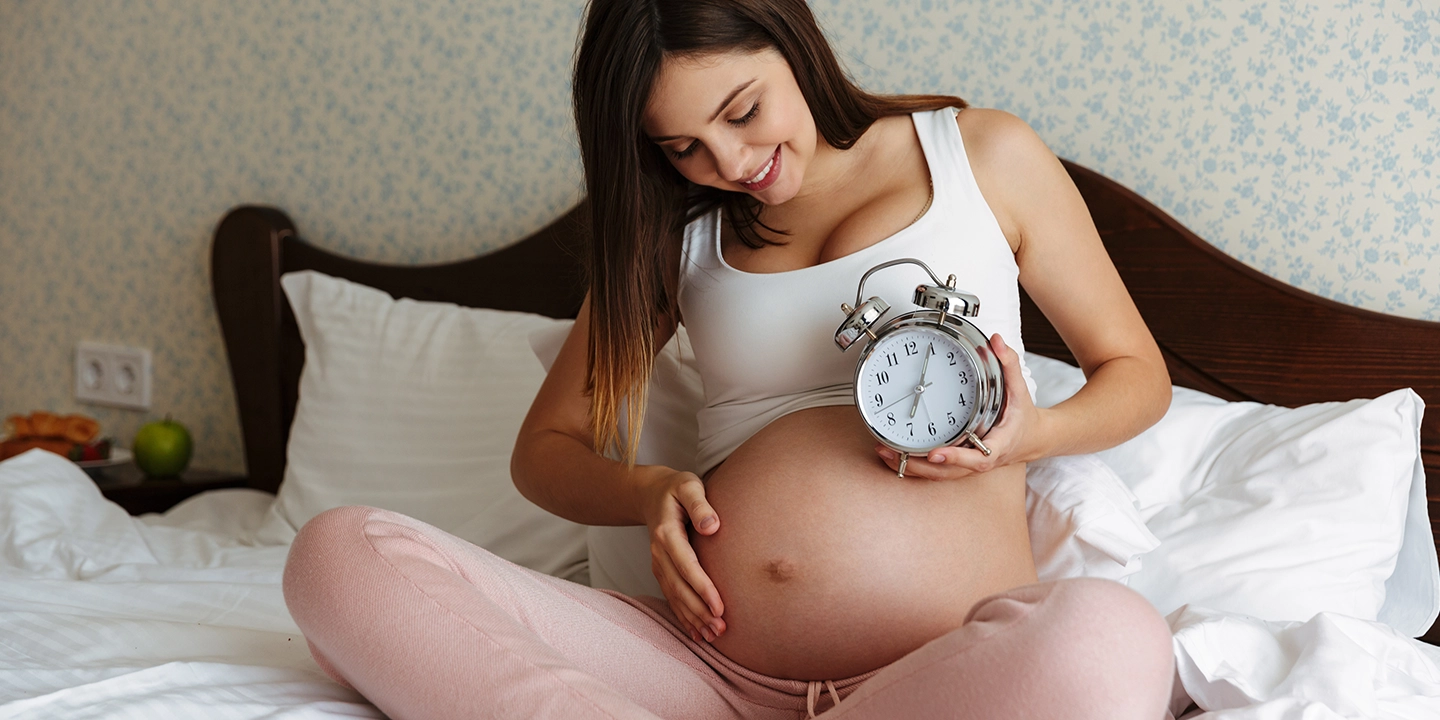
Starting your journey toward parenthood is an incredible milestone, yet it often comes with its own set of challenges. But not to worry the expert team at Queen’s Gynecology is here to guide you through a transformative approach, offering 27 impactful lifestyle tips designed to boost fertility rates.
In this article, we delve into practical, everyday adjustments that can significantly enhance your chances of conceiving.
From dietary considerations to stress management techniques, each tip is carefully curated to empower you on this remarkable path.
Join us as we explore these proactive measures aimed at optimizing your fertility and nurturing your dreams of starting or expanding your family.
In this Article
About Fertility Rate
Fertility rate refers to the average number of children a woman is expected to have in her lifetime within a specific population. Understanding one’s fertility rate can be pivotal in making informed decisions about starting a family. It empowers women to consider their reproductive health, explore options for conception if needed, and plan their future accordingly.
It’s commonly measured by the total fertility rate (TFR), which indicates the average number of children born to a woman over her reproductive years. A TFR of around 2.1 children per woman is generally considered the replacement level.
27 Lifestyle Tips to Increase the Fertility Rate
Boosting fertility often involves making lifestyle adjustments that can positively impact the chances of conception. Here are 27 tips that can help increase fertility rates:
-
Maintain a Balanced Diet
A balanced diet provides the necessary nutrients that support hormonal balance, regulate menstrual cycles, enhance egg quality, and improve overall reproductive health.
Incorporate a variety of nutrient-dense foods into your diet. Fruits, vegetables, whole grains, lean proteins (such as poultry, fish, tofu), and healthy fats (like avocados, nuts, olive oil) provide essential vitamins and minerals.
Folate (found in leafy greens and citrus fruits) and iron (from beans, red meat, and spinach) are crucial for reproductive health and can reduce the risk of birth defects. Foods rich in antioxidants (like berries, nuts, and seeds) can protect eggs and sperm from damage caused by free radicals, potentially improving fertility.
-
Stay Hydrated
Proper hydration maintains cervical mucus consistency, which facilitates sperm movement and survival in the reproductive tract. It also helps regulate body temperature, which is crucial for fertility. Aim to drink at least 8-10 glasses of water per day. Herbal teas and natural fruit-infused water are good alternatives.
-
Manage Weight
Obesity or being significantly underweight can disrupt hormone production, menstrual cycles, and ovulation, impacting fertility. Maintaining a healthy weight improves the chances of regular ovulation and enhances fertility.
Focus on whole foods, portion control, and balanced meals. Avoid crash diets and extreme weight fluctuations. Engage in moderate exercise regularly, such as brisk walking, cycling, or yoga.
-
Exercise Regularly
Regular physical activity helps maintain a healthy weight, reduces stress, improves circulation, and promotes hormonal balance, all of which contribute to improved fertility.
Engage in moderate physical activity for at least 30 minutes most days of the week. Activities like walking, swimming, or yoga can be beneficial.
While regular exercise is important, excessive or intense workouts can potentially disrupt menstrual cycles and ovulation. Balance is key. If unsure about the appropriate exercise regimen, consult with a fitness professional or healthcare provider.
-
Avoid Smoking
Smoking can decrease fertility by affecting hormone production, damaging reproductive organs, and reducing egg quality, sperm count, and motility. If you smoke, consider quitting. Smoking negatively affects fertility in both men and women by damaging eggs, sperm, and reproductive organs. Limit exposure to second-hand smoke as it can also harm fertility.
-
Limit Alcohol Intake
Excessive alcohol consumption can interfere with hormone production, disrupt menstrual cycles, decrease sperm quality, and potentially lead to fertility issues in both men and women.
Limit alcohol consumption to moderate levels. For women, this typically means no more than one drink per day, and for men, up to two drinks. When trying to conceive, it is best to opt for complete abstinence from alcohol to maximize fertility.
-
Reduce Caffeine
Excessive caffeine intake has been associated with fertility issues, affecting hormone levels and potentially disrupting the menstrual cycle. Limit caffeine consumption to moderate levels, typically around 200-300 milligrams per day (equivalent to about 1-2 cups of coffee).
Replace some caffeinated beverages with herbal teas or decaffeinated options. Remember that Caffeine can also be found in certain sodas, teas, chocolates, and some medications.
-
Get Enough Sleep
Adequate sleep supports hormonal balance, boosts immune function, and reduces stress, all of which are crucial for fertility. Lack of sleep can disrupt hormone production and menstrual cycles, impacting fertility in both men and women.
Aim for 7-9 hours of quality sleep per night by following a consistent sleep schedule. Make your bedroom conducive to sleep by keeping it dark, quiet, and at a comfortable temperature.
-
Manage Stress
Chronic stress can interfere with hormone regulation, disrupt ovulation and sperm production, and decrease libido, all of which can affect fertility. Engage in activities like meditation, yoga, deep breathing exercises, or mindfulness to reduce stress levels.
Talk to a counselor, therapist, or support group if stress is significantly impacting your well-being. Prioritize self-care, set boundaries, and find healthy outlets for managing stress.
-
Track Menstrual Cycle
Understanding your menstrual cycle and fertile window can assist in timing intercourse to maximize the chances of conception. Keep track of your menstrual cycle to identify your most fertile days. There are various apps available that can help predict ovulation and fertile windows based on cycle data. Tracking your BBT can indicate when ovulation occurs. A rise in BBT often signals ovulation.
-
Avoid Toxins
Toxins and chemicals in the environment can interfere with hormone balance and reproductive function, potentially impacting fertility in both men and women. Limit exposure to harmful chemicals found in certain cleaning products, pesticides, and plastics.
Stay away from substances like BPA (found in some plastics), certain pesticides, and chemicals known to have adverse effects on reproductive health. Choose organic produce and natural household products whenever possible.
-
Consider Supplements
Certain vitamins and minerals play a crucial role in reproductive health. Supplements can help address deficiencies and support fertility, but it’s essential to take them under guidance to avoid potential complications.
Women trying to conceive are often advised to take folic acid supplements to reduce the risk of birth defects. Adequate vitamin D levels are associated with improved fertility in both men and women.
Before starting any supplements, consult with a healthcare provider to ensure they are appropriate for your specific needs and to determine the correct dosage.
-
Maintain Sexual Health
Protect yourself from sexually transmitted infections (STIs) by using condoms and getting regular STI screenings. Seek treatment for any existing sexual health concerns, infections, or conditions that could impact fertility.
Open communication with your partner about sexual health concerns and fertility goals is essential. Sexually transmitted infections can cause inflammation or damage to reproductive organs, leading to fertility issues if left untreated.
-
Stay Active
Regular physical activity supports overall health, aids in maintaining a healthy weight, and promotes hormonal balance, which are all essential for fertility. Prolonged periods of inactivity can negatively impact overall health and potentially affect fertility.
Incorporate physical activity into your routine to promote circulation, maintain a healthy weight, and reduce stress. Engage in a mix of exercises such as cardio, strength training, and flexibility exercises for overall health.
-
Limit Exposure to Heat
Prolonged exposure to high temperatures, such as in hot tubs or saunas, can temporarily decrease sperm production in men. For men, wearing tight underwear or clothing that increases scrotal temperature may affect sperm quality. Opt for loose-fitting clothing when possible.
Avoid placing laptops directly on the lap for extended periods as they generate heat that can affect sperm quality. Elevated temperatures around the reproductive organs can impair sperm production and function, impacting fertility in men.
-
Practice Good Hygiene
Maintaining good personal hygiene is crucial for preventing infections that could affect fertility. This includes regular bathing, proper handwashing, and keeping genital areas clean.
Practicing good hygiene during sexual activity, such as washing before and after, can help prevent infections that might impact fertility. If you have concerns about specific hygiene practices impacting fertility, consult with a healthcare provider.
-
Limit Stressful Situations
Chronic stress can disrupt hormone balance, interfere with ovulation and sperm production, and affect overall fertility. Recognize and address sources of stress in your life, whether they’re related to work, relationships, or other factors.
Engage in stress-relief activities like meditation, exercise, hobbies, or therapy to manage stress levels. Make time for relaxation, self-care, and activities that bring joy and relaxation.
-
Communicate with Partner
Effective communication fosters a supportive environment, reduces stress, and ensures that both partners are actively involved and on the same page when it comes to fertility goals and strategies.
Have open and honest conversations with your partner about fertility goals, concerns, and any issues related to trying to conceive. Support and encourage each other through the emotional journey of trying to conceive. If needed, consider seeking guidance from fertility specialists or healthcare providers together.
-
Consider Genetic Testing
Genetic testing can identify potential genetic risks, allowing for informed decisions and possible interventions to mitigate risks during conception and pregnancy.
Consider undergoing genetic testing before trying to conceive. This can help identify any potential genetic disorders or conditions that could be passed on to offspring.
-
Seek Medical Advice
If you’ve been trying to conceive without success for a significant period (usually a year for couples under 35 and six months for those over 35), consider seeking guidance from a fertility specialist.
Regularly visit healthcare providers for check-ups to address any underlying health issues that might affect fertility. If you suspect any fertility-related issues, don’t hesitate to seek medical advice promptly.
-
Limit Medications
Certain medications can interfere with hormone production, ovulation, or sperm production, potentially affecting fertility. Consulting healthcare providers helps navigate these concerns.
Before taking any medications or supplements, consult with healthcare providers, especially if you’re trying to conceive. Review current medications with your healthcare provider to ensure they don’t interfere with fertility or pose risks during pregnancy.
-
Fertility Awareness Methods
Fertility awareness methods aid in identifying the most fertile days and maximizing the chances of conception by timing intercourse appropriately.
Track your BBT to identify when ovulation occurs. Changes in cervical mucus consistency can indicate fertile days. Fertile mucus is clear, slippery, and stretchy. Ovulation predictor kits detect hormonal changes indicating ovulation.
-
Mindful Sexuality
Focus on emotional intimacy and connection with your partner during intercourse. Avoid making intercourse solely about conception, aiming for a more relaxed and enjoyable experience.
Openly communicate with your partner about needs, desires, and concerns related to intimacy and fertility. Mindful sexuality fosters a supportive environment, reduces stress, and promotes a positive approach to conception, which can enhance fertility.
-
Educate Yourself
Utilize reliable sources to educate yourself about fertility, reproductive health, and conception methods. Participate in fertility workshops or seminars to gain knowledge and insights from experts.
Seek information and guidance from healthcare providers or fertility specialists to address specific concerns. Educating yourself about fertility empowers you to make informed decisions, understand the reproductive process, and explore various strategies to optimize fertility.
-
Support Each Other
Offer mutual emotional support to your partner throughout the fertility journey. Acknowledge and validate each other’s feelings and concerns. Approach the fertility journey as a team, sharing both the joys and challenges together.
If needed, attend appointments and seek guidance from healthcare providers or fertility specialists as a couple. Mutual support strengthens the relationship, reduces stress, and fosters a positive environment, which can positively impact fertility.
-
Consider Lifestyle Changes
Reflect on lifestyle choices and habits that might impact fertility. Discuss potential changes with your partner. Consider adopting healthy habits, such as diet modifications, exercise routines, stress reduction techniques, and improving sleep patterns, as a couple.
Establish realistic lifestyle changes that both partners can commit to for improved fertility. Lifestyle changes, when made together, can optimize overall health and fertility, increasing the chances of successful conception.
-
Don’t Hesitate to Ask Questions
Encourage open communication between partners and with healthcare providers to address doubts, concerns, or queries regarding fertility.
Don’t hesitate to seek clarification or ask questions about treatments, procedures, or fertility-related information during appointments.
Take advantage of support groups, online forums, or educational materials to gather information and ask questions. Asking questions fosters understanding, ensures informed decision-making, and empowers individuals and couples throughout their fertility journey.
Conclusion
In the quest to enhance fertility, embracing a holistic lifestyle approach is key. From diet and exercise to emotional support and medical guidance, every step matters. For expert assistance in navigating this journey, trust Queen’s Gynecology, Delhi’s premier fertility clinic. Our specialized care and comprehensive solutions pave the way to realizing your dreams of parenthood. Contact Queen’s Gynecology today for personalized fertility support and guidance.
FAQs
- How to conceive naturally?
Conception through natural means involves understanding fertile windows and maintaining a healthy lifestyle through modifications to your daily schedule and closely monitoring your health. Consultation with experts can help you achieve this.
- How can I get pregnant at 40 fast?
Consulting a fertility specialist and focusing on optimizing health and lifestyle factors can increase the chances of conceiving with a reduced risk of complications at 40.
- How can I improve my egg quality in 30 days?
Enhancing egg quality typically requires longer-term lifestyle adjustments rather than rapid changes in 30 days; focus on a balanced diet, managing stress, and avoiding harmful substances to achieve the desired quality over time.


































































































